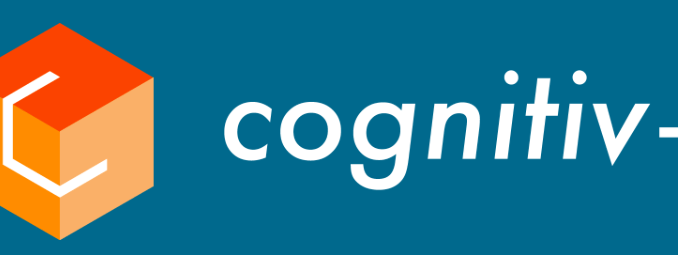
The legal AI market has another new cognitive engine: UK-based Cognitiv+, which is a system designed to review documents and contracts, while also cross-referencing them with the latest regulation in order to provide a compliance tool.
Based in King Cross, London, Cognitiv+ is the brainchild of CEO Vasilis Tsolis and CTO Achilleas Michos.
Artificial Lawyer had a chat with Tsolis about how the company came about, where it’s headed and how he sees the legal AI market evolving.
Vasilis Tsolis is an engineer, but also has a law degree. He says he found himself having to deal with a lot of procurement and contract review issues in his previous jobs. The inefficiency and time needed for such work was painfully apparent.
As with many start-ups the eureka moment began with a realisation: there had to be a better way of doing this.
Meanwhile, his friend Achilleas Michos had been working in both software development and also in areas such as risk management, including a stint at Eurex, the Frankfurt-based derivatives trading platform.
As is often the case with technology start-ups there was a marriage between real world experience of ‘pain points’ and some advanced technical knowledge that could be applied to resolve that pain point.
The answer to the pain point of time-consuming document review and compliance checking for Tsolis and Michos was Cognitiv+, which formally launched just six months ago. The company is piloting its software with lawyers and some corporates. The new venture has six people at present and is self-funded.

The challenge now is to carve out a market position and to some extent to differentiate itself from the competition. Tsolis is well aware of the battles to come to establish Cognitiv+, but he takes a realistic approach.
‘There are already other players in this market, but there is a lot of space to add different use cases,’ he explains.
Where the company hopes to differentiate itself is by not just providing contract review using NLP and machine learning, which is well developed by other legal tech companies, but to link this to a body of legislation and regulation which then allows a lawyer, or executive in a company, to conduct a very rapid and thorough compliance review.
To quote the firm: ‘Our system crawls thousands of legislation lines and mines your contracts and policies to structure sets of meaningful data, targeting the information you require based on the company’s content, cleansing it in a format that the ‘relevant’ and ‘important’ information is segregated from the rest.’
The idea is to both provide this service in terms of checking a small number of contracts, perhaps in an inhouse setting, and also provide broader document review, for example for due diligence. The aim therefore is two-pronged.
Moreover, Tsolis says that things have only just begun in the NLP/AI space, especially in the legal market. Much will change and new developments will appear.
‘NLP has some limitations, but we are not at its limits yet. We are all in discovery mode. It is progressing so fast, it’s possible that in two years some AI companies’ core technology will be out of date,’ he explains.
‘What happens then?’ he asks. Will law firms have to drop one AI company and take up another that has a more advanced offering? Or will it be like bank accounts that people change very rarely?
These are big questions and most of the market is not thinking about them in detail. Most lawyers are just trying to understand what AI can offer, they are not considering what the next generation of legal AI will provide in a few years’ time.

From Tsolis’s perspective the legal AI market is at such an early stage that it’s hard to predict what will happen next. What does seem likely however is that clients will eventually sort out the companies that really ‘do what they say they can do’ from those that don’t. In time the legal AI market will reshape.
Because of this he doesn’t mind the fact that the market is getting busier, or that there are already several larger legal AI companies that are well established. There is everything to play for.
One final thought he shares is that inhouse legal functions are certain to embrace AI, something that Artificial Lawyer has explored recently.
Tsolis points out: ‘Some companies have been looking at AI for over five years now. We see CEOs and COOs of companies who are now familiar with AI applications. We also see HR teams inside companies making use of AI.’
‘So,’ he concludes, ‘if the GC and inhouse lawyers in a company are not using it as well then they will be in a very different situation to the other parts of the company.’
The conclusion therefore seems to be that the legal AI market is far from sewn up and there is room for both new entrants and for significant technological change in the near future that could reshape the market. Cognitiv+ clearly wants to be an active part in that change.
2 Trackbacks / Pingbacks
Comments are closed.